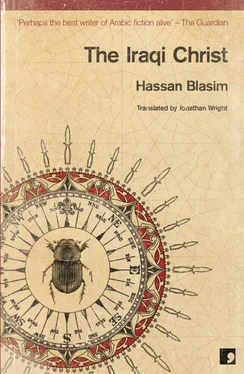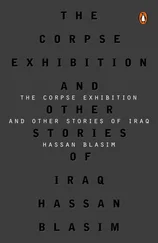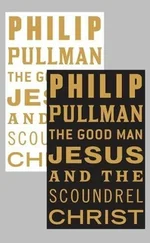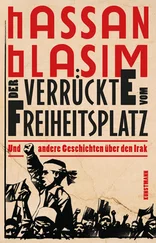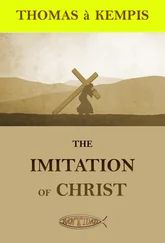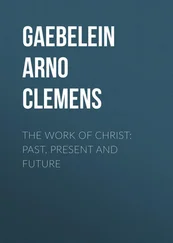We crossed the main street towards the other neighbourhood. All along the way I was wondering what Abu Hadid had whispered in the gerbil’s ear. Abu Hadid coughed loudly and his chest wheezed like my uncle’s old tractor. He didn’t say a single word on the way. He lit two cigarettes at the same time and offered one to me. It was after midnight. I don’t know anyone who lives in this neighbourhood, other than an obnoxious boy who was at school with us. He once punched me and I never did manage to stick a finger up his arse in return. When he found out I was Abu Hadid’s brother, his father came to school and asked me to beat his son up. People were scared senseless of my brother’s brutality. His reputation for ruthless delinquency spread throughout the city. He would baffle the police and other security agencies for many years until, that is, the day he was executed in public. Even his enemies mourned him when the inevitable happened. Occasionally in life he had defended people, against the cruelty of the ruling party, for example. Abu Hadid didn’t distinguish between good and evil. He had his own private demons. Once he threw a hand grenade at the party office when ‘the comrades’ executed someone who had evaded military conscription. Another time he mutilated the face of some wretched vegetable seller, simply because he was drunk and he felt like it. Abu Hadid would go on the rampage like that for eight years, until Johnny the barber gave him away. The night it happened Abu Hadid was fucking Johnny’s pretty brown daughter on the roof of the house. The police surrounded him and shot him in the leg. They executed him a week later. My mother and my seven sisters would beat their breasts for a whole year, but my father was relieved to be rid of the antics of his wayward son.
Abu Hadid knocked on a rusty door that still had a few spots of green paint, shaped like frogs, on it. We were received by a man in his forties with a thick moustache which covered his teeth when he spoke. We sat down in the guest room in front of the television. I gathered that the man lived alone. He went into the kitchen and came back with a bottle of arak. He opened it and poured a glass. My brother told him to pour one for me too. We sat in silence, and the man and I watched a football match between two local teams, while my brother stared into a small fish tank.
‘Do you think the fish are happy in the tank?’ my brother asked, calm and serious.
‘As long as they eat and drink and swim, they’re fine,’ the man replied, without looking away from the television screen.
‘Do fish drink water?’
‘Sure they drink, of course.’
‘How can fish drink saltwater?’
‘Sure they have a way. How could they be in water and not drink?’
‘If they’re in water, perhaps they don’t need to drink.’
‘Why don’t you ask the fish in the tank?’
Before the bald man could turn to look at him, my brother had jumped on top of him like a hungry tiger. He threw him to the ground, squatted on his chest and pinned his arms down under his knees. In a flash he took a small knife out of his pocket, put it close to the man’s eye and started shouting hysterically in his face: ‘Answer, you cocksucker! How can fish drink saltwater? Answer, you son of a bitch! Answer! Do fish drink water or don’t they? Answer, shit-for-brains!’
Abu Hadid stuck a cucumber up the man’s arse and we left the house. I never would understand what the man had to do with my brother. We headed towards the car park. A thin young man, a year younger than my brother, was leaning against a red Chevrolet Malibu dating from the seventies. He embraced my brother warmly and I felt that Abu Hadid and he were genuine friends. We set off in the car, smoking and listening to a popular song about lovers parting. We took the highway towards the outskirts of the city. Abu Hadid turned off the tape player, lay back in his seat and said, ‘Murad, tell my brother the story about the Pakistani kid.’
‘Sure, no problem,’ replied Murad Harba.
‘Listen, Mahdi. Some years back I took the plunge and escaped to Iran. I was thinking of going from there into Turkey and putting this fucked-up country behind me. I lived in a filthy house in the north of Iran, with people coming from Pakistan, Afghanistan and Iraq and everywhere on God’s pimping Earth. We waited for them to hand us over to the Iranian trafficker who was going to take us across the mountainous border. That’s where I met the Pakistani kid. He was about your age, nice guy, young and very handsome. He spoke little Arabic but he had memorised the Quran. He was always scared. And he had a strange object in his possession: a compass. He would hold it in the palm of his hand like a butterfly and stare at it. Then he would hide it in a special pouch that hung around his neck like a golden pendant. He hanged himself in the bathroom the day before Iranian security raided the house. They shoved us in jail and beat us up plenty. When they’d finished humiliating us, we got our breath back and started to get to know the other prisoners. One of the people we chatted with was a young Iraqi who’d been jailed for selling hashish. He was born in Iran. The government had deported his family from Baghdad after the war broke out on the grounds that he had Iranian nationality. I told him about the Pakistani kid who had hanged himself. The man was really upset about the poor boy, said he had met him before, that he was a good kid, and that he knew the whole story of the compass.
‘In 1989 in the Pakistani city of Peshawar, Sheikh Abdullah Azzam, the spiritual father of the jihad in Afghanistan, was in a car on his way to pray in a mosque frequented by the Afghan Arabs — the Arabs who went to fight in Afghanistan. The car was blown up as it crossed a bridge over a storm drain. His two sons were with him and were torn to pieces. According to the muezzin 5of the mosque, who rushed to the scene of the explosion as soon as it happened, Azzam’s body was seemingly untouched. Not a single scratch. There was just a thin line of blood running from the corner of the dead sheikh’s mouth. It was a dreadful disaster — al Qaeda was accused of assassinating the sheikh who had stood up to the might of the Soviet Union, perhaps to give them greater impunity as an organisation.
‘Before many others had gathered, Malik the muezzin spotted the compass close to the wreckage of the car. When he wiped the blood off it, he felt a shiver run up his spine. It was an army compass with the words Allah and Muhammad engraved on it. It was clear to the muezzin that it was the sheikh’s holy compass, blessed by God and a conduit for His miracles. Many of the mujahideen claimed the compass turned blood-red when God intended good or evil for the person carrying it. Azzam had never parted with it throughout his life in jihad. Malik hid it at home for ten years. He took it out every night, polished it and looked at it, as he shed tears of sorrow at the death of the mujahideen’s sheikh.
‘The muezzin placed the compass gently into the hand of his son Waheed, like someone setting down a precious jewel onto a piece of cloth. Waheed had decided to smuggle his way into England. He might strike lucky there, help his family and study to become a doctor. The muezzin told his son Waheed the secret of the compass and advised him to guard it with his life. With firm faith, he told him the compass would help him on his journey and throughout his life, and that it was the most precious thing a father could offer his son. Waheed was unaware of the compass’s powers and significance, and didn’t know much about those holy and special moments when the compass turned red to warn of good or evil, but his faith in his father made him treasure it. The compass then became inseparable from his person. Waheed reached Iran and lived in dilapidated houses run by traffickers. He had to work six months to save enough money to make the crossing to Turkey. One day he went out with six young Afghans to work on a building site. A rich Iranian man picked them up in a small truck and drove them to the outskirts of the town, where he was building an enormous house in the middle of his farm. They were working for a pittance. The man dropped them off at his farm and asked them to clear away the bricks, plaster, sacks and wood left over from the building work. The deal was that the owner would come back late that evening and take them back to town. He gave them half their wages in advance and advised them to finish the work properly. Waheed and the Afghans worked slowly and lazily all day long. When the sun set they all prayed and then sat down to relax in one of the large rooms. They poured some juice, rolled cigarettes and started to chat about trafficking routes to Europe. Every now and then the young Afghans would give Waheed sly looks of contempt. The owner was late. The Afghans decided to pass the time by playing a betting game, which was really a malicious trick. There was a group of barrels filled with water, next to some bags full of plaster. They told Waheed the game was that they would mix the plaster with water in a barrel and everyone in the group would put his hands in the mixture up to his elbow, and whoever managed to keep them in the longest would win a sum of money. They suggested Waheed go first. Full of good cheer and innocence, Waheed stood up and went through the motions, burying his arms in the plaster mixture. Within a few minutes the plaster set hard and Waheed’s arms were trapped in the barrel. The Afghans pulled down Waheed’s trousers and raped him one by one.’
Читать дальше
